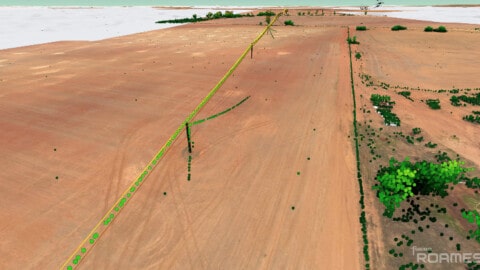Strong industry competition, and shareholder perception that companies are not future-proofing, are some of the reasons why innovation in asset management has become a necessity. Here, Steve Doran, Director of Infrastream, and Chair of the Asset Management Council’s Sydney Chapter, discusses the risks that companies who are responsible for managing assets face if they are not willing to invest in innovation.
 The need to innovate in asset management has become a necessity in order for asset managers to meet stakeholder expectations for critical assets amid tightening costs and risk constraints.
The need to innovate in asset management has become a necessity in order for asset managers to meet stakeholder expectations for critical assets amid tightening costs and risk constraints.
Ahead of his keynote presentation, Leading innovation in asset management, at the Asset Management for Critical Infrastructure Conference, from 16-17 August in Sydney, Mr Doran says companies responsible for managing assets need to address several risks when considering if they are willing to invest in innovation.
According to Mr Doran, companies in a competitive commercial context need to identify and address the following types of risks when considering their focus on and investment in innovation:
- Their traditional technologies becoming obsolete within broader engineering systems
- More agile start-ups or offshore firms providing more cost effective offerings for the same or better outcomes
- Shareholder perception that they are not future-proofing themselves and therefore are not a sound investment
- Sinking staff morale as their people are expected to deliver greater productivity without the tools to do so
Mr Doran has seen these risks first hand from his 20 years of experience in asset management, including his current roles as Director of Infrastream, an asset management consultancy, and Chair of the Asset Management Council’s Sydney Chapter. He has also helped implement innovative practices at Sydney Water, and through his certification as an ISO 55001 Asset Management Assessor.
Balancing need for innovation with standards
While investing in innovation can be rewarding for companies, innovation typically requires some form of risk taking, or circumventing norms, which can be seen as direct opposition to industry standards which tend to minimise risk, and drive toward conformity.
Mr Doran says with the need to innovate, asset managers and owners ‘must take a position that standards can be challenged to varying degrees on a case by case basis.’
“While at one extreme there may be standards that are compulsory via legislation that should not be by-passed due to say commercial risk exposure, there will also be many that are effectively only optional guidance or allow significant leeway,” Mr Doran says.
“Perhaps the most relevant example to us all as asset managers are the ISO 5500X suite of asset management standards. Earlier this year, due to my passion for innovation and role in the field of asset management, I performed an analysis of clauses throughout these three standards to determine whether innovation and ISO 5500X were ‘friends or foes’.
“Refreshingly the outcome of this analysis was that these standards do not restrain us from innovating. The ‘how’ we implement management of assets is up to us and the only real innovation limits in this case are preconceptions and misconceptions and the nature of our interaction with the key stakeholders around us.”
Is your company investing in innovation?
Hear more from Steve Doran about implementing innovation in asset management in his presentation ‘Leading innovation in asset management’ at the Asset Management for Critical Infrastructure Conference, running from 16-17 August at the Swissôtel in Sydney.
Super early bird pricing ends Friday 16 June so get in quick to save up to $1,070.
Select utility companies and asset owners may also be eligible for $500 tickets. For more information or to register visit www.assetmanagementforcriticalinfrastructure.com.au.














